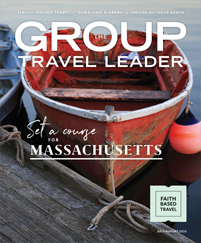Experience the stories of the Civil Rights Movement and the difficult path to equality in all areas of life.
Rev. Arthur Price Jr.: A Love That Forgives
Eighteen days after the March on Washington for Jobs and Freedom; 18 days after Martin Luther King Jr. said, “I have a dream”; 18 days after King implored the world to judge his children on the content of their character not the color of their skin, “[t]he response to the ‘I Have a Dream Speech’ in Birmingham was to bomb this church,” said the Rev. Arthur Price Jr., pastor of the 16th Street Baptist Church in Birmingham, Alabama.
Local Ku Klux Klan members planted the bomb, which detonated at 10:22 a.m., Sunday, September 15, 1963. It was Youth Sunday. That day’s Sunday School lesson was “A Love That Forgives.”
Five girls were in the ladies room when the explosion ripped open the building. Addie Mae Collins, Denise McNair, Carole Robertson and Cynthia Wesley were all killed, and Sarah Collins was blinded in one eye. More than 20 others were injured.
“We believe that the events that happened here in 1963 galvanized a generation, motivated a movement and made the bitter days of Birmingham better,” Price said.
Wanda Howard Battle: Remembering a Pioneer
In 1947, a new pastor arrived at Dexter Avenue Baptist Church in Montgomery, Alabama. The Rev. Vernon Johns “was this fireball, controversial, unafraid of anybody and would stand up against the segregation of this city,” said Wanda Howard Battle, the church’s tour director.
That didn’t sit well with the wealthy, socially elite church members, but Johns was a forerunner of civil rights. He helped prepare the congregation for the work that came later, work led by Martin Luther King Jr.
Johns would tell them, “You may be the socially elite, but you’d better care about your brothers and sisters who are down the street being beat and jailed,” Battle said.
He resigned in 1952, and King became the pastor in 1954. Following Rosa Parks’ arrest, other pastors encouraged King to serve as spokesman for the Montgomery bus boycott, which started his journey to the forefront of the civil rights movement. King resigned as pastor of Dexter Baptist in 1960 “because the work was greater than Montgomery.”
Bernard LaFayette Jr.: We Shall Overcome
On May 20, 1961, a group of black and white Freedom Riders rode a Greyhound bus into Montgomery, Alabama, to continue efforts to desegregate bus terminals. At the Greyhound station, they were met by a mob of over 200 members of the Ku Klux Klan and klan supporters.
“I said, ‘Well, let’s all join hands and sing ‘We Shall Overcome.’ That’s what you do when you don’t know what to do,” said Bernard LaFayette Jr., who was leading one of the Freedom Riders groups that day.
They were singing that song when the mob closed in. The horde knocked James Zwerg over a railing and gashed open John Lewis’ head with a crate. LaFayette ended up with three cracked ribs.
At the hospital, fellow rider William Barbee, who was badly beaten, looked at LaFayette and asked, “When are we going to Jackson?” — the next stop for the Freedom Riders.
“So if there was any question at all about whether we were going to Jackson, Mississippi, the question was answered right there. We going. Because that’s the whole idea of a movement. You keep moving, no matter what happens.”
Dorothy Lockett Holcomb: Fighting for Education
Rather than comply with a court order to desegregate, Prince Edward County in Virginia closed all public schools for five years.
“They decided if we have to integrate, we’re just not going to have public schools at all,” Dorothy Lockett Holcomb said. “So, in 1959, I was 10 years old, fourth grade and totally devastated without a school to go to.”
Her parents assured her she would get an education. Instead of walking one mile to her three-room school every day, she walked three miles each way to be tutored in a church basement.
“I did that for two years thinking that schools were going to open, but they never did.”
Eventually, her father rented a dilapidated house in Appomattox County, where schools were still open, and they pretended to live there. He dropped Holcomb and her brother off every morning, and they would wait behind the house until they heard the bus coming.
When Prince Edward County schools reopened in 1963, Holcomb’s family didn’t return.
“The only thing my father said to me was, ‘I’m not going to give them the chance to do that to you again.’”
David Jordan: Reflecting on Justice
Mississippi state Sen. David Jordan was a college student in September 1955 when his professor told the class to read newspapers about the Emmett Till murder trial.
When school let out that day, Jordan said, “Let’s go to Sumner.” His classmate drove Jordan and his brother to the town. They walked into the packed courtroom while the funeral home director was testifying about the appearance of Till’s body.
Order was scarce in the court; people were doing pretty much whatever they wanted to do, Jordan said. During a recess, Till’s killers “were drinking cokes and laughing.”
“I could tell nobody was serious about it; kind of a mockery of a trial,” he said.
Jordan and his classmate shared their firsthand account of the trial for their class project. They got an “A.”
“Looking back on it, I knew they were not serious,” Jordan said of the trial. He added, “It was just a mockery of justice. They didn’t intend to do anything because they were never serious.”
For more civil rights stories, visit vimeo.com/civilrightstrail











